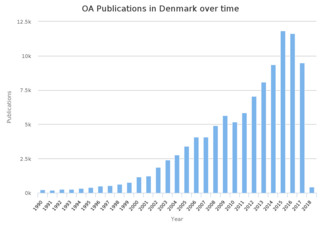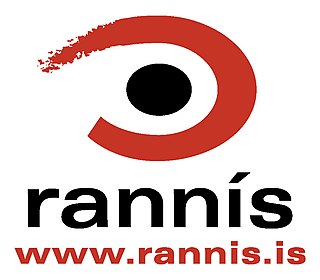Related Research Articles

The Nordic Council is the official body for formal inter-parliamentary Nordic cooperation among the Nordic countries. Formed in 1952, it has 87 representatives from Denmark, Finland, Iceland, Norway, and Sweden as well as from the autonomous areas of the Faroe Islands, Greenland, and the Åland Islands. The representatives are members of parliament in their respective countries or areas and are elected by those parliaments. The Council holds ordinary sessions each year in October/November and usually one extra session per year with a specific theme. The council's official languages are Danish, Finnish, Icelandic, Norwegian, and Swedish, though it uses only the mutually intelligible Scandinavian languages—Danish, Norwegian, and Swedish—as its working languages. These three comprise the first language of around 80% of the region's population and are learned as a second or foreign language by the remaining 20%.

The United Nations Development Programme (UNDP) is a United Nations organization tasked with helping countries eliminate poverty and achieve sustainable economic growth and human development. Headquartered in New York City, it is the largest UN development aid agency, with offices in 170 countries.

The Directory of Open Access Journals (DOAJ) is a website that hosts a community-curated list of open access journals, maintained by Infrastructure Services for Open Access (IS4OA). The project defines open access journals as scientific and scholarly journals making all their content available for free, without delay or user-registration requirement, and meeting high quality standards, notably by exercising peer review or editorial quality control. DOAJ defines those as open access journals where an open license is used so that any user is allowed immediate free access to the works published in the journal and is permitted to read, download, copy, distribute, print, search, or link to the full texts of [the] articles, or use them for any other lawful purpose. The mission of DOAJ is to "increase the visibility, accessibility, reputation, usage and impact of quality, peer-reviewed, open access scholarly research journals".

Vidar L. Haanes is a Norwegian professor of Church- and Intellectual History and rector of MF Norwegian School of Theology, Religion and Society, Oslo.
The Centre for Reviews and Dissemination (CRD) is a health services research centre based at the University of York, England. CRD was established in January 1994, and aims to provide research-based information for evidence-based medicine. CRD carries out systematic reviews and meta-analyses of healthcare interventions, and disseminates the results of research to decision-makers in the NHS.
The Commonwealth Foundation (CF) is an intergovernmental organisation that was established by the Commonwealth Heads of Government in 1966, a year after its sister organisation, the Commonwealth Secretariat. The Foundation is located at Marlborough House in London, a former royal palace which was assigned for the use of these Commonwealth institutions by Her Majesty Queen Elizabeth II, the Head of the Commonwealth. As the Commonwealth agency for civil society, the Foundation is funded by 49 member states to support participatory governance through its programmes. The Foundation provides resources, grants and access to platforms to encourage better engagement between civil society and institutions of governance. Membership of the Commonwealth Foundation is voluntary and is separate from membership of the Commonwealth of Nations.

The European University Institute (EUI) is an international postgraduate and post-doctoral teaching and research institute established by European Union member states to contribute to cultural and scientific development in the social sciences, in a European perspective. EUI is designated as an international organisation. It is located in the hills above Florence in Fiesole, Italy. In 2021, EUI's School of Transnational Governance, with its flagship graduate and executive programmes, moved to the Casino Mediceo di San Marco, which is a late-Renaissance or Mannerist style palace in the historic centre of Florence.

The International Work Group for Indigenous Affairs (IWGIA) is an independent and non-profit international human rights-based membership organization, whose central charter is to endorse and promote the collective rights of the world's indigenous peoples. Established in 1968, the IWGIA is registered as a non-profit organization in Denmark, with the head office of its secretariat based in Copenhagen. IWGIA's work is primarily funded by the Nordic Ministries of Foreign Affairs and the European Union.
hprints is an archive for electronic preprints of academic papers in the fields of arts and humanities. It can be accessed freely via the Internet since it is an open access repository aiming at making scholarly documents publicly available to the widest possible audience.

Free content, libre content, or free information is any kind of functional work, work of art, or other creative content that meets the definition of a free cultural work.
The Nordic Gender Institute (NIKK), previously Nordic Institute for Women's Studies and Gender Research, was a transnational resource and information centre for gender research and gender equality in the Nordic countries. It was established in 1995 by the Nordic Council of Ministers and closed down in 2011.
The European Educational Research Association (EERA) is an association of national and regional associations representing educational researchers in Europe. EERA aims to encourage collaboration amongst educational researchers in Europe, promote communication between educational researchers and international governmental organisations and disseminate and highlight state-of-the-art findings of educational research, primarily through the annual European Conference on Educational Research (ECER) and its associated journal, the European Educational Research Journal (EERJ).
Nordic Innovation is an institution that works to promote cross-border trade and innovation between the Nordic countries. Nordic Innovation works under the auspices of the Nordic Council of Ministers, and is located in Oslo.
Nordisk Panorama Film Festival is an annual film festival for Nordic short and documentary films, founded in 1990 and organized by Nordisk Panorama. From 1990 to 2012, the festival rotated between different cities in the five Nordic countries. Since 2013, it has taken place in Malmö, Sweden in September every year.

Open access to scholarly communication in Denmark has grown rapidly since the 1990s. As in other countries in general, open access publishing is less expensive than traditional, paper-based, pre-Internet publishing.
Open access scholarly communication of Norway can be searched via the Norwegian Open Research Archive (NORA). "A national repository consortium, BIBSYS Brage, operates shared electronic publishing system on behalf of 56 institutions." Cappelen Damm Akademisk, Nordic Open Access Scholarly Publishing, University of Tromsø, and Universitetsforlaget belong to the Open Access Scholarly Publishers Association. Norwegian signatories to the international "Open Access 2020" campaign, launched in 2016, include CRIStin, Norsk institutt for bioøkonomi, Norwegian Institute of Palaeography and Historical Philology, Norwegian University of Science and Technology, Oslo and Akershus University College of Applied Sciences, University of Tromsø, University of Bergen, University of Oslo, and Wikimedia Norge.

Open access (OA) to academic publications has seen extensive growth in Australia since the first open access university repository was established in 2001 and OA is a fundamental part of the scholarly publishing and research landscape in Australia. There are open access policies at the two major research funders: The National Health and Medical Research Council (NHMRC) and Australian Research Council (ARC) and around half of Australian Universities have an OA policy or statement. Open Access Australasia, the Council of Australian University Librarians (CAUL), and the Australian Library and Information Association (ALIA) are advocates for Open Access and related issues in Australia.
The National Documentation Centre of Greece is a public organisation that promotes knowledge, research, innovation and digital transformation. It was established in 1980 with funding from the United Nations Development Programme with the aim to strengthen the collection and distribution of research-related material, and to ensure full accessibility to it. It has been designated as a National Scientific Infrastructure, a National Authority of the Hellenic Statistical System, and National Contact Point for European Research and Innovation Programmes. Since August 2019, it has been established as a discrete public-interest legal entity under private law, and is supervised by the Ministry of Digital Governance. The management bodies of EKT are the Administrative Board and the Director who, since 2013, has been Dr. Evi Sachini.

The Icelandic Centre for Research funds and promotes scientific research in Iceland. It formed in 2003 through an act of legislation. As of 2007, the Ministry of Education, Science and Culture oversees its activities. It operates from headquarters on Borgartún in Reykjavík.
NordForsk is an organisation run by the Nordic Council which finances and facilitates Nordic cooperation in research and research infrastructure.
References
- ↑ Programme description from the National Library of Iceland
- ↑ Hedlund, Turid, and Ingegerd Rabow. 2009. Scholarly publishing and open access in the Nordic countries. Learned Publishing 22(3), 177-186(10).
- ↑ NordBib-programmet programme description from Nordforsk (in Norwegian)
- ↑ Board members of Nordbib
- ↑ Project homepage
- ↑ Nordbib grants NIAS LINC DKK 560.000 Archived 2011-06-04 at the Wayback Machine Swedish South Asian Studies Network/Lund University
- ↑ Project information from the National Library of Finland
- ↑ Nordbib evaluated Press release from Nordbib
- ↑ Council Conclusions on scientific information in the digital age: access, dissemination and preservation, Council of the European Union, 2832nd Competitiveness Council meeting, Brussels, 22 and 23 November 2007